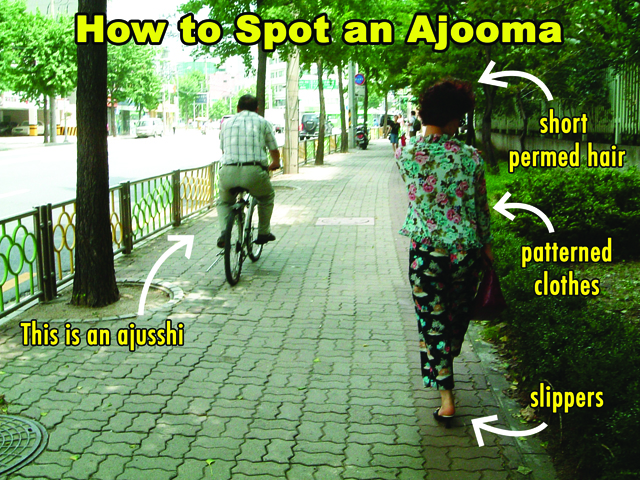This week's episode on KWOW featured two very common words in Korean dramas: AJOOMA and AJUSSHI. If you haven't seen it yet, watcha waiting for? Watch the video below.
When I visited Seoul, I saw a woman walking on the street who lives up to the Ajooma Standard.
Short permed hair? Check. Mismatching patterned clothes and slippers? Check. She wasn't plump, but she's definitely an awesome cook. How do I know this? Because this ajooma is my mother!
If my mom finds out I posted this photo, I'll probably be grounded for the next few weeks. Regardless of how old I am. I must mention: my mother is now more fashion-conscious and wears a balanced amount of patterns.
As we learned in KWOW #42, ajooma is used towards middle-aged women. Ajusshi is the term for middle-aged males.
For those who love Lee Minho, this is for you. Scene from "City Hunter" using the term ajusshi:
There's a movie titled "Ajusshi," starring Won Bin. You'll notice the young girl calling the main character "ajusshi" even though he is not middle-aged. Remember that "ajusshi" also means "mister," thus is acceptable to use toward younger males. However it is not recommended to call females "ajooma" if they are younger than 40 years of age.
Trailer for the "Ajusshi" movie:
Another situation where ajusshi is used as "mister" rather than as "middle-aged man":
Check back next Wednesday! :)






























